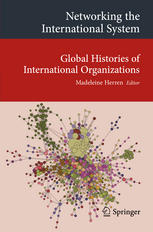

Most ebook files are in PDF format, so you can easily read them using various software such as Foxit Reader or directly on the Google Chrome browser.
Some ebook files are released by publishers in other formats such as .awz, .mobi, .epub, .fb2, etc. You may need to install specific software to read these formats on mobile/PC, such as Calibre.
Please read the tutorial at this link: https://ebookbell.com/faq
We offer FREE conversion to the popular formats you request; however, this may take some time. Therefore, right after payment, please email us, and we will try to provide the service as quickly as possible.
For some exceptional file formats or broken links (if any), please refrain from opening any disputes. Instead, email us first, and we will try to assist within a maximum of 6 hours.
EbookBell Team

4.0
46 reviewsThe book critically investigates the local impact of international organizations beyond a Western rationale and aims to overcome Eurocentric patterns of analysis. Considering Asian and Western examples, the contributions originate from different disciplines and study areas and discuss a global approach, which has been a blind spot in scholarly research on international organizations until now. Using the 1930s as a historical reference, the contributions question role of international organizations during conflicts, war and crises, gaining insights into their function as peacekeeping forces in the 21st century. While chapter one discusses the historicity of international organizations and the availability of sources, the second chapter deliberates on Eurocentrism and science policy, considering the converging of newly created epistemic communities and old diplomatic elites. Chapter 3 sheds light on international organizations as platforms, expanding the field of research from the diversity of organizations to the patterns of global governance. The final chapter turns to the question of how international organizations invented and introduced new fields of action, pointing to the antithetic role of standardization, the preservation of cultural heritage and the difficulties in reaching a non-Western approach.